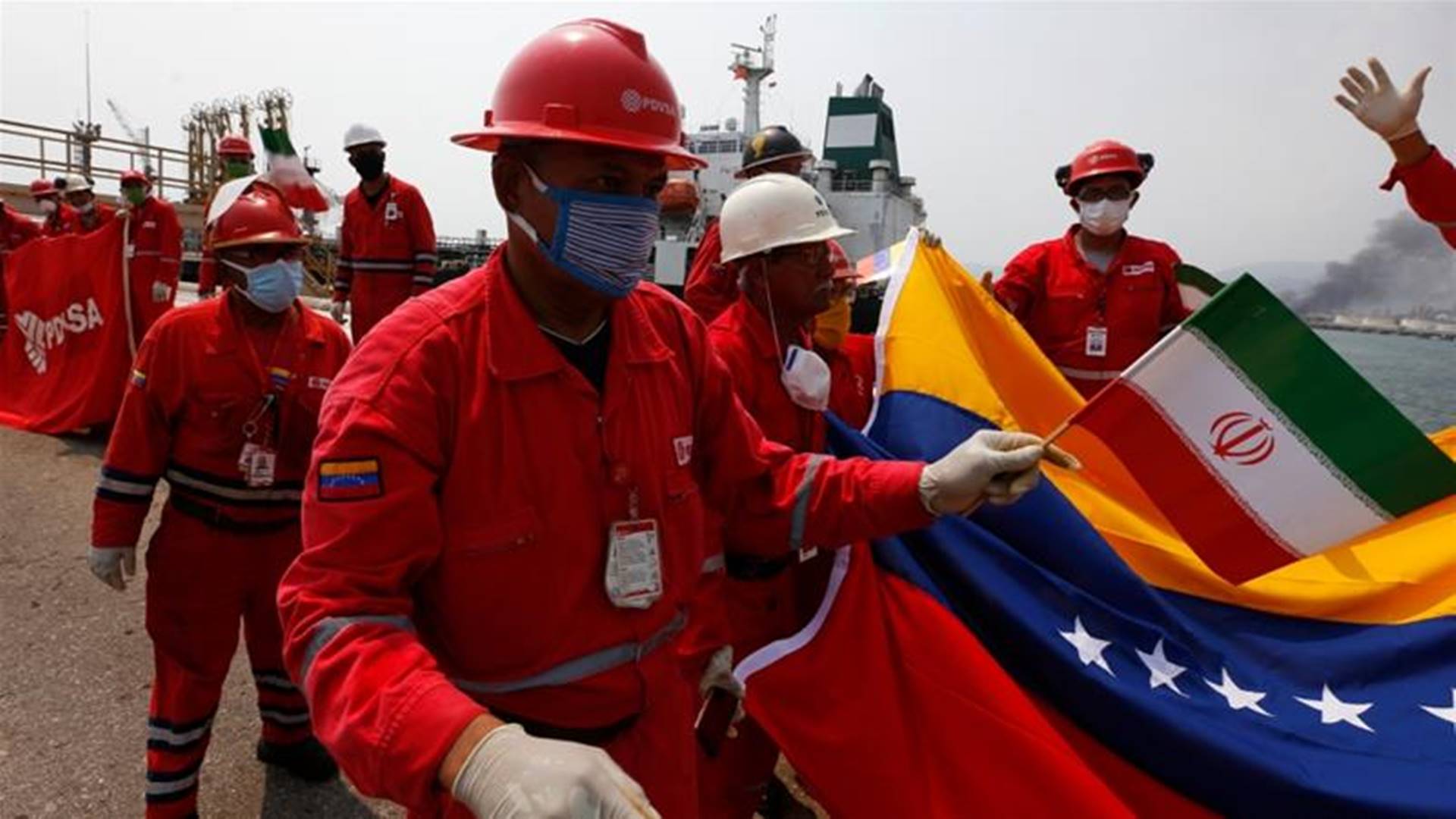American officials tell AP Trump administration seized cargo of four tankers transporting Iranian fuel to Venezuela.
The United States said it had confiscated four Iranian fuel shipments that had been bound for Venezuela, disrupting a key supply line for both Tehran and Caracas as they defied US sanctions.
US President Donald Trump said Iran should not be sending cargoes to Venezuela and added that the seized shipments were bound for Houston, Texas, and suggested they may have already arrived.
“They’re going to Houston. And, they’re there,” Trump told a White House news conference. “We’re moving them, and moved, to Houston.”
The US Justice Department said the seized cargo was now in US custody “with the assistance of foreign partners,” adding that the amount confiscated from four tankers was about 1.116 million barrels of fuel, making it the largest US seizure of Iranian fuel.
The U.S. State Department credited its outgoing special envoy for Iran for the seizure operation.
Neither the Justice Department nor the State Department specify when, where or how the seizure took place.
In China, fears of financial Iron Curtain as U.S. tensions rise
A senior American official told The Associated Press news agency no military force was used in the seizures and the ships were not physically confiscated. Rather, US officials threatened ship owners, insurers and captains with sanctions to force them to hand over their cargo, which now becomes US property.
Prosecutors alleged the four ships were transporting to Venezuela 1.1 million barrels of gasoline. But the tankers never arrived at the South American country and then went missing. Two of the ships later reappeared near Cape Verde, a second US official said.
Both officials agreed to discuss the sensitive diplomatic and judicial offensive only if granted anonymity.
Meanwhile, Iran’s ambassador to Venezuela said reports that Iranian tankers had been seized were “yet another lie and psychological warfare” by the United States.
“The ships are not Iranian, and neither the owner nor its flag has anything to do with Iran,” Hojat Soltani said on Twitter in Spanish.
‘Broken up’
It is not clear where the vessels – the Bella, Bering, Pandi and Luna – or their cargoes currently are, but the ship captains weeks ago turned off their tracking devices to hide their locations, said Russ Dallen, a Miami-based partner at brokerage Caracas Capital Markets, who follows ship movements.
The Bering went dark on May 11 in the Mediterranean near Greece and has not turned on its transponder since, while the Bella did the same July 2 in the Philippines, Dallen said. The Luna and Pandi were last spotted when they were together in the Gulf of Oman on July 10 when the US seizure order came. Shipping data shows that the Pandi, which also goes by Andy, is reporting that it has been “broken up,” or sold as scrap, Dallen said.
As commercial traders increasingly shun Venezuela, Nicolas Maduro’s socialist government has been increasingly turning to Iran.
In May, Maduro celebrated the arrival of five Iranian tankers delivering badly needed fuel to alleviate shortages that have led to days-long gas lines even in the capital, Caracas, which is normally spared such hardships.
Despite sitting atop the world’s largest crude reserves, Venezuela doesn’t produce enough domestically refined gasoline and has seen its overall crude production plunge to the lowest in over seven decades amid its economic crisis and fallout from US sanctions.
The Trump administration has been stepping up pressure on ship owners to abide by sanctions against US adversaries like Iran, Venezuela and North Korea. In May, it issued an advisory urging the global maritime industry to be on the lookout for tactics to evade sanctions like dangerous ship-to-ship transfers and the turning off of mandatory tracking devices – both techniques used in recent oil deliveries to and from both Iran and Venezuela.
One of the companies involved in the shipment to Venezuela, the Avantgarde Group, was previously linked to the Revolutionary Guard and attempts to evade US sanctions, according to prosecutors.
An affiliate of Avantgarde facilitated the purchase for the Revolutionary Guard of the Grace 1, a ship seized last year by Britain on US accusations that it was transporting oil to Syria. Iran denied the charges and the Grace 1 was eventually released. But the seizure nonetheless triggered an international standoff in which Iran retaliated by seizing a British-flagged vessel.
According to the asset forfeiture complaint, an unnamed company in February invoiced Avantgarde for a $14.9m cash payment for the sale of the gasoline on board the Pandi. Nonetheless, a text message between Madanipour and an unnamed co-conspirator suggest the voyage had encountered difficulties.
“The ship owner doesn’t want to go because of the American threat, but we want him to go, and we even agreed We will also buy the ship,” according to the message, an excerpt of which was included in the complaint.
Iran’s president says Emirates made ‘huge mistake’ with Israel deal
Aljazeera / Balkantimes.press
Napomena o autorskim pravima: Dozvoljeno preuzimanje sadržaja isključivo uz navođenje linka prema stranici našeg portala sa koje je sadržaj preuzet. Stavovi izraženi u ovom tekstu autorovi su i ne odražavaju nužno uredničku politiku The Balkantimes Press.
Copyright Notice: It is allowed to download the content only by providing a link to the page of our portal from which the content was downloaded. The views expressed in this text are those of the authors and do not necessarily reflect the editorial policies of The Balkantimes Press.

